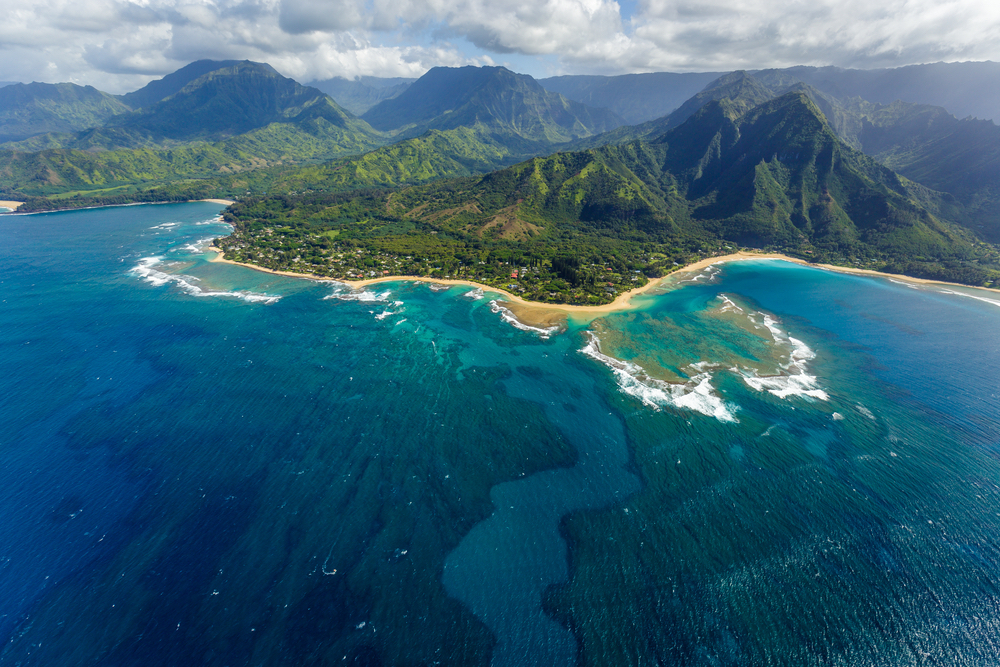Hawai’i Becomes First State to Ban Toxic Sunscreen Chemicals

Hawai’i has become the first state to officially ban oxybenzone and octinoxate, two chemicals found in most sunscreens.
Oxybenzone and octinoxate are two chemicals that damage coral reef systems. Hawai’i, as it has a large reef system, has faced damages from these chemicals. Baby reefs die due to a bleaching element in oxybenzone, which also is toxic to seven different coral species.
“Oxybenzone can also cause coral bleaching. An oxybenzone concentration of around 400 ppt over several days is enough to induce coral bleaching in warm waters. Downs’ team tested ocean water off popular beaches on Maui and detected oxybenzone contamination of up to 4,000 parts per trillion (ppt),” Mauireefs.org stated.
In May 2018, Hawai’i passed laws through their house and senate. The laws ensure that any sunscreen containing these chemicals will be banned unless prescribed by a medical professional. These went into effect on January 1, 2021.
📅This year Hawaii’s ban on oxybenzone and octinoxate in sunscreen goes into effect.🌞 This bill will make sunscreens safer for coral reefs🐠🐟 and less cancerous⚠️ for you! https://t.co/nEtqnq9TYU
— Safe Cosmetics (@SafeCosmeticsHQ) January 7, 2021
Before the laws went into effect, Hawai’i worked to minimize the use. Working with the FDA (Food and Drug Administration) and sunscreen companies, Hawai’i was given time to create coral safe creams.
Snorkeling cruises started offering coral safe sunscreens for passengers and snorkelers. This was so the chemicals, which wash off the body as one enters the water, heavily reduced.
By choosing reef-friendly sunscreen, you’re helping to keep Hawaii’s coral reefs beautiful and healthy. Fair Wind Provides complimentary reef-safe sunscreen for guests on board all of our snorkel tours.https://t.co/m93COpSRKM pic.twitter.com/xfIDVHvf2B
— Fair Wind Cruises (@FairWindHI) February 17, 2020
Mauireefs.org stated, “Remember that even if you are miles away from the ocean, chemicals washed off your body in your shower or bath will eventually find their way to the sea. When you’re home, do a good turn for coral reefs everywhere by avoiding all body care products with oxybenzone and octinoxate.”
Did you know that some sunscreens can damage coral reefs and cause #coralbleaching? Before applying sunscreen on a #beachtrip, check if the ingredients contain #oxybenzone and #octinoxate. Protect the reef by using #mineralsunscreens with non-nano zinc oxide. Be #reefsafe 😎 ☀️ pic.twitter.com/xicaHgrfx4
— Coral Reef Alliance (@coral_org) January 26, 2021
Even if one uses sunscreen daily, the attempt to reduce chemical pollution can be lowered by purchasing a sunscreen free of oxybenzone and octinoxate. Many scientists recommend using zinc-oxide or mineral-based sunscreens.
This law could become a massive statement for other states, perhaps giving them the idea to ban these harsh chemicals. Not only would this help surrounding oceans, lakes, or reservoirs, it would also help protect wildlife. When wildlife drinks, or swim in the waters they have the potential of getting sick due to harmful chemicals such as the ones produced by certain sunscreens.
As Hawai’i continues the ban, perhaps other states will follow suit. As for now, the ban gives Hawai’i’s reefs to, hopefully, recuperate.

Writer | Tweet me @atms6_




